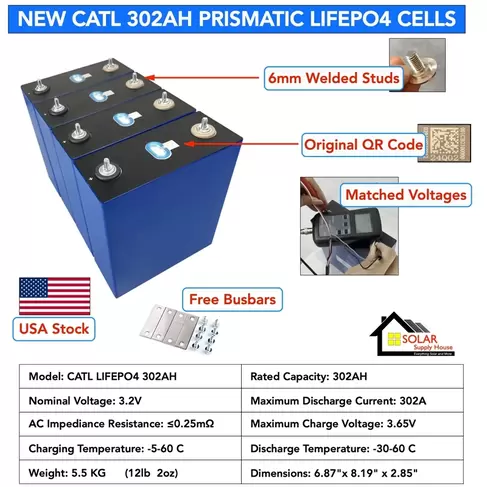I've been living on and restoring a midsized motor yacht for several years and am ready to add some solar capability to my electrical system. Solar power is new to me and I have spent quite a bit of time on line watching videos and researching component parts. So far the current plan is to get a basic 24V system going and adding output capability as necessary. I have settled, I THINK, on the basics as follows;
1) Two series connected Oasis Firefly 12V/116A G31 (carbon foam chemistry) batteries.
2) Two Renogy 160W monocrystalline PV panels also in series.
3) One Outback Power 80A MPPT controller, and 4) the required switches, fuses, and busses as necessary.
The boat has a 13 X 14 ft unshaded flybridge roof with a projected vertical distance of 22ft from panel mounts to battery bank adjacent to engine room. There is a 30kva genset aboard but it's noisy as hell and drinks too much. I would like to get off the grid amap while retiring the genset to backup duties.
Would welcome any advice, input, suggestions etc on the above component parts, specifically compatibility.
Thanks to responders. Rodd
1) Two series connected Oasis Firefly 12V/116A G31 (carbon foam chemistry) batteries.
2) Two Renogy 160W monocrystalline PV panels also in series.
3) One Outback Power 80A MPPT controller, and 4) the required switches, fuses, and busses as necessary.
The boat has a 13 X 14 ft unshaded flybridge roof with a projected vertical distance of 22ft from panel mounts to battery bank adjacent to engine room. There is a 30kva genset aboard but it's noisy as hell and drinks too much. I would like to get off the grid amap while retiring the genset to backup duties.
Would welcome any advice, input, suggestions etc on the above component parts, specifically compatibility.
Thanks to responders. Rodd



